The Must-List: 5 Books About Movies Every Film Lover Needs on Their Bookshelf
From the earliest days of Hollywood, the movie industry has been a lucrative subject matter for the publishing industry.
Between celebrity tabloids, trade magazines, film reviews, academic criticism, interviews and magazine profiles, more words have been printed about the art of filmmaking—and those who make a living doing it—than perhaps any other topic this side of losing weight or surviving an inhospitable teen dystopia.
Book about movies come in all shapes, sizes and levels of critical repute—from trashy showbiz tell-all’s, to classy memoirs, to practical how-to guides for navigating both the craft and industry of creating filmed entertainment. And no film lover’s home library is complete without at least one sagging shelf or cluttered Kindle carousel full of dog-eared prose about the moving pictures they love.
This week on The Must-List we asked the Film Independent staff to unleash their inner bookworm and suggest some titles aimed at keeping you occupied during those long nights huddled under the comforter with a flashlight.
Here are five titles that run the movie-book gamut; so the next time your book club president tries to wedge yet another Jonathan Franzen title into the rotation, you can suggest one of these entertaining and educational page-turners instead:
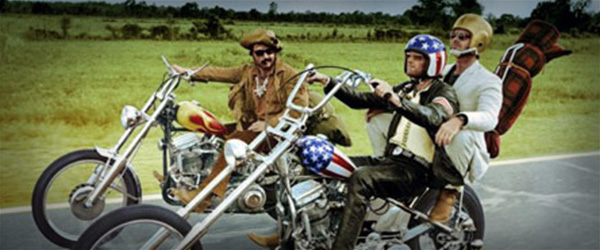
Easy Riders Raging Bulls, by Peter Biskind (1998)
This book is gross. Just look at the pictures. There’s Robert Towne surrounded by topless Amazonians (“He abandoned everything for Personal Best.”) There’s Paul Schrader with his arm around a terrified-looking Natassja Kinski on the set of Cat People (“According to director John Milius, she said, “Paul, I always fuck my directors. And with you it was difficult.”) There’s Ali MacGraw whispering sweet nothings to Robert Evans, who is wearing an extremely oversized bowtie (Says Evans, “She was looking at me and thinking of Steve McQueen’s cock.”) Yes, Peter Biskind’s rise-and-fall ‘70s epic is gossipy and sleazy and disgusting. But it also happens to be about the people who made some of history’s greatest movies. I love it.
-Will Slocombe, Senior Events Producer
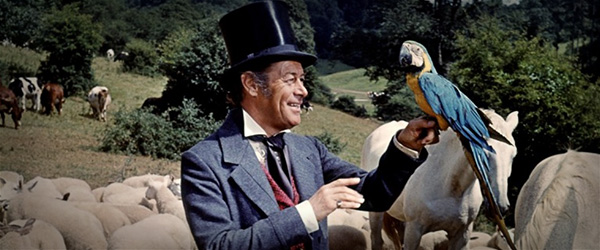
The Studio, by John Gregory Dunne (1969)
In 1967, journalist John Gregory Dunne asked 20th Century Fox President Darryl F. Zanuck if he could have unlimited access to the studio for one year. That’s not the remarkable part. The remarkable part is that Zanuck actually agreed. The result was Dunne’s brisk, highly readable classic, The Studio. True to his word, Dunne spent 12 long months observing how the Hollywood sausage got made during the waning days of the studio system—from the bumbling rollout of Doctor Doolittle, to the sleeper success of Planet of the Apes, to the fractious drama behind the scenes on forgotten fare like The Boston Strangler and Voyage to the Bottom of the Sea. Dunne’s prose is crisp and economical, yet dense with telling details and observations. There are plenty of absurd moments—like when a producer’s girlfriend steals a sterling silver serving tray from the Doolittle wrap party—but the material never feels gossipy or prurient. And Dunne keeps his editorializing to a minimum, letting the facts speak for themselves.
-Matt Warren, Digital Content Manager
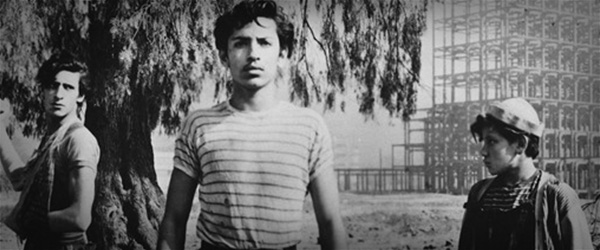
24 Frames: The Cinema of Latin America, by Alberto Elena and Marina Díaz López (2004)
“Cinema is, first and foremost, the projection of a cultural identity which comes to life on the screen.”
So says Walter Salles in the preface to 24 Frames: The Cinema of Latin America, edited by Alberto Elena and Marina Díaz López. The 24 Frames series analyzes national cinema movement by exploring a handful of seminal films from each region. For a Latin American cinephile such as myself, reading this edition was a very personal experience, for both the love of both the medium and of the subjects being explored. Other editions in the series include Italian, Indian, Russia and the former Soviet Union and more. So go ahead, get to know a people through their cinema. Or better yet, get to know yourself.
-Daniel Larios, Film Independent Writer
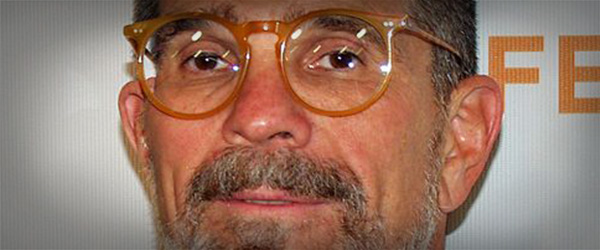
On Directing Film, by David Mamet (1991)
On Directing Film is based on a series of lectures David Mamet gave at Columbia University’s film school. Although Mamet gave these lectures in 1987 and I only read the book a few years ago, I discovered that his unique perspective on directing was as valuable now as it must have been back then. On the first page he confesses his “ignorance” on directing due to his lack of experience. However, throughout the book this “ignorance” only comes across as a unique and philosophical—he actually references philosophers such as Aristotle—perspective on being the puppet master behind a film. He provides nuanced and deeply thoughtful insight on what it really means to be the guy or gal in the director’s chair.
-Kaia Placa, Institutional Giving Coordinator
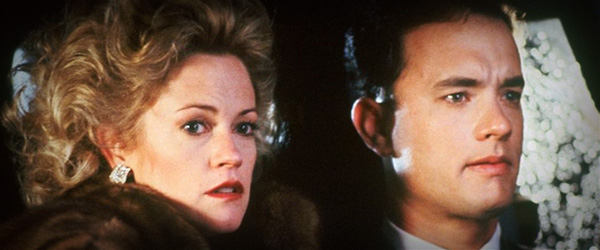
The Devil’s Candy, by Julie Salamon (1991)
The subtitle of Julie Salamon’s chronicle of the making of Brian De Palma’s ill-fated 1990 film adaptation of The Bonfire of the Vanities is “the anatomy of a Hollywood fiasco”—and that pretty much sums it up. But the book isn’t just an exercise in schadenfreude; in observing the slow-motion train wreck of one of the worst literary adaptations ever made, Salamon deftly illustrates how small errors of judgment can quickly congeal into something much more toxic, compounding and gathering momentum as the unwieldy machinery of Hollywood film production makes it impossible to course-correct or get things back on track. What’s more, Salamon’s storytelling canvas is nearly as expansive as Tom Wolfe’s original novel, full of fascinating and pitiable characters at every level or celebrity and notoriety. The Devil’s Candy is instructive reading for anyone who’s ever walked out of a theater shaking their head and saying “Ugh, why bother?” (Matt Warren)
There! That’s more than enough reason to renew that dust-covered library card. After all, knowing more about the movies you love can make them even more enjoyable. It’s like G.I. Joe once said: “Knowledge is power!”
Let us know your book recommendations in the comments, or share your favorite titles with us on our Facebook and Twitter.
To learn more about Film Independent, subscribe to our YouTube channel. You can catch up with the rest of our blog here. And to learn how to become of Member of Film Independent, just click here.